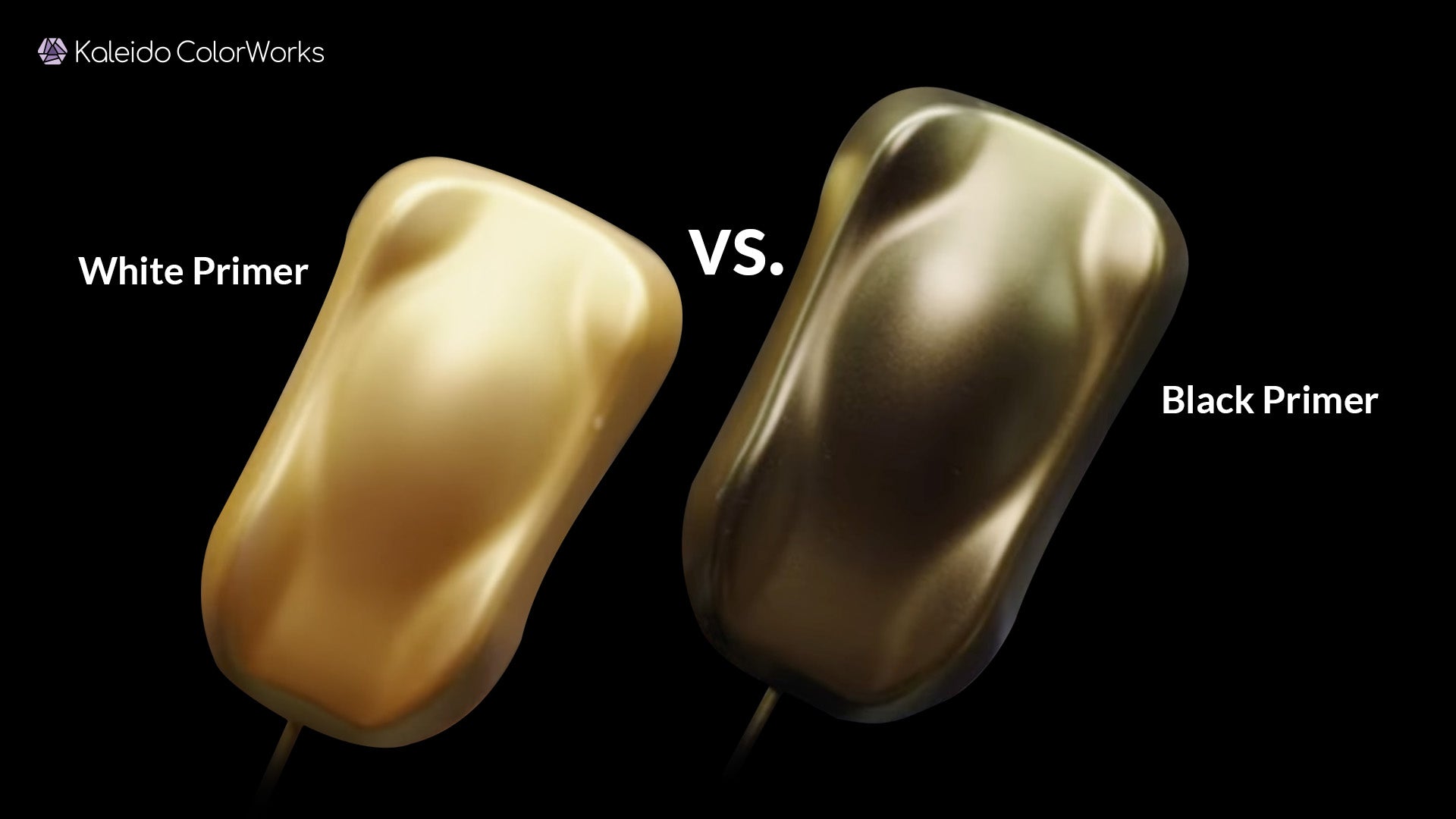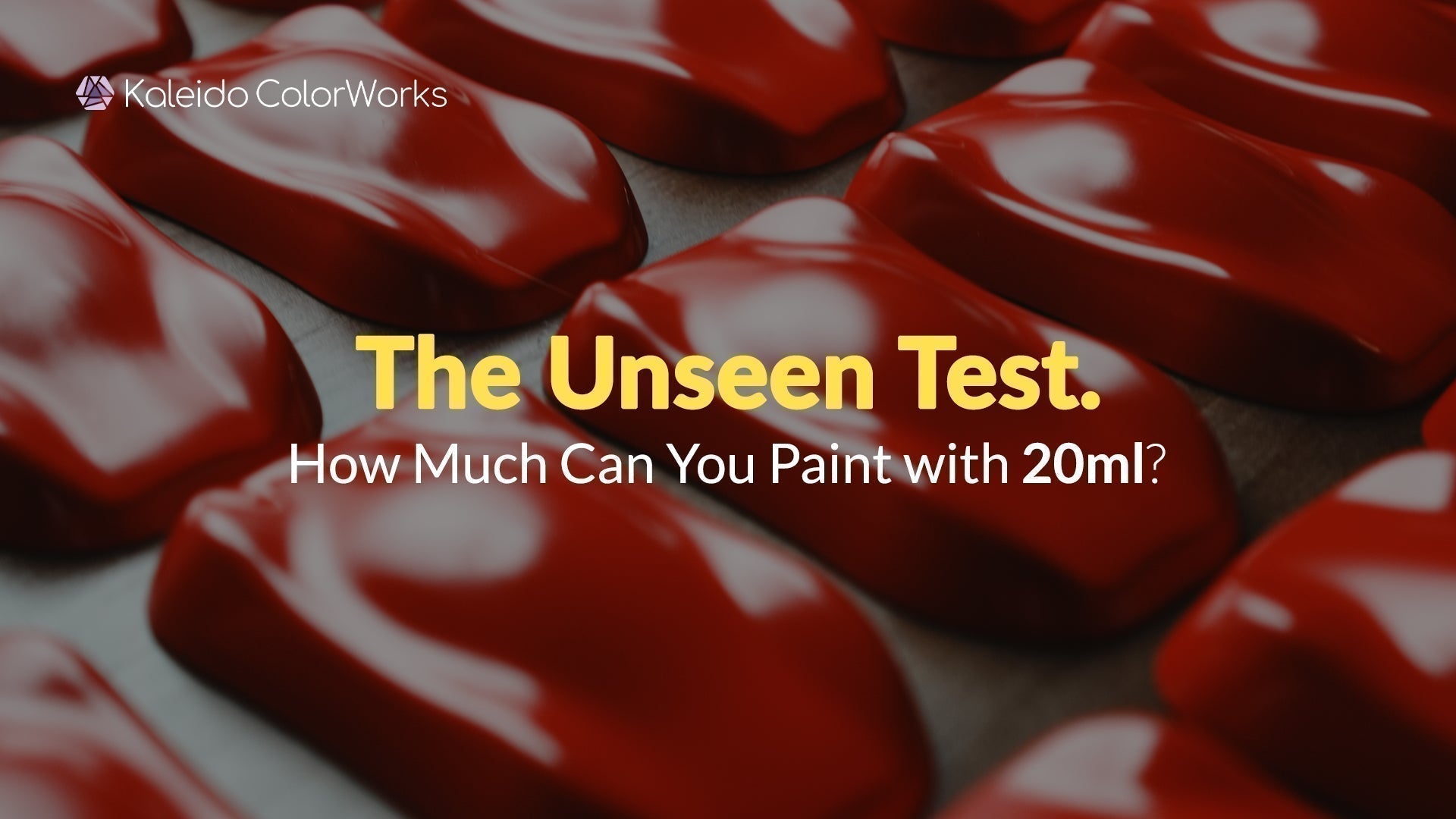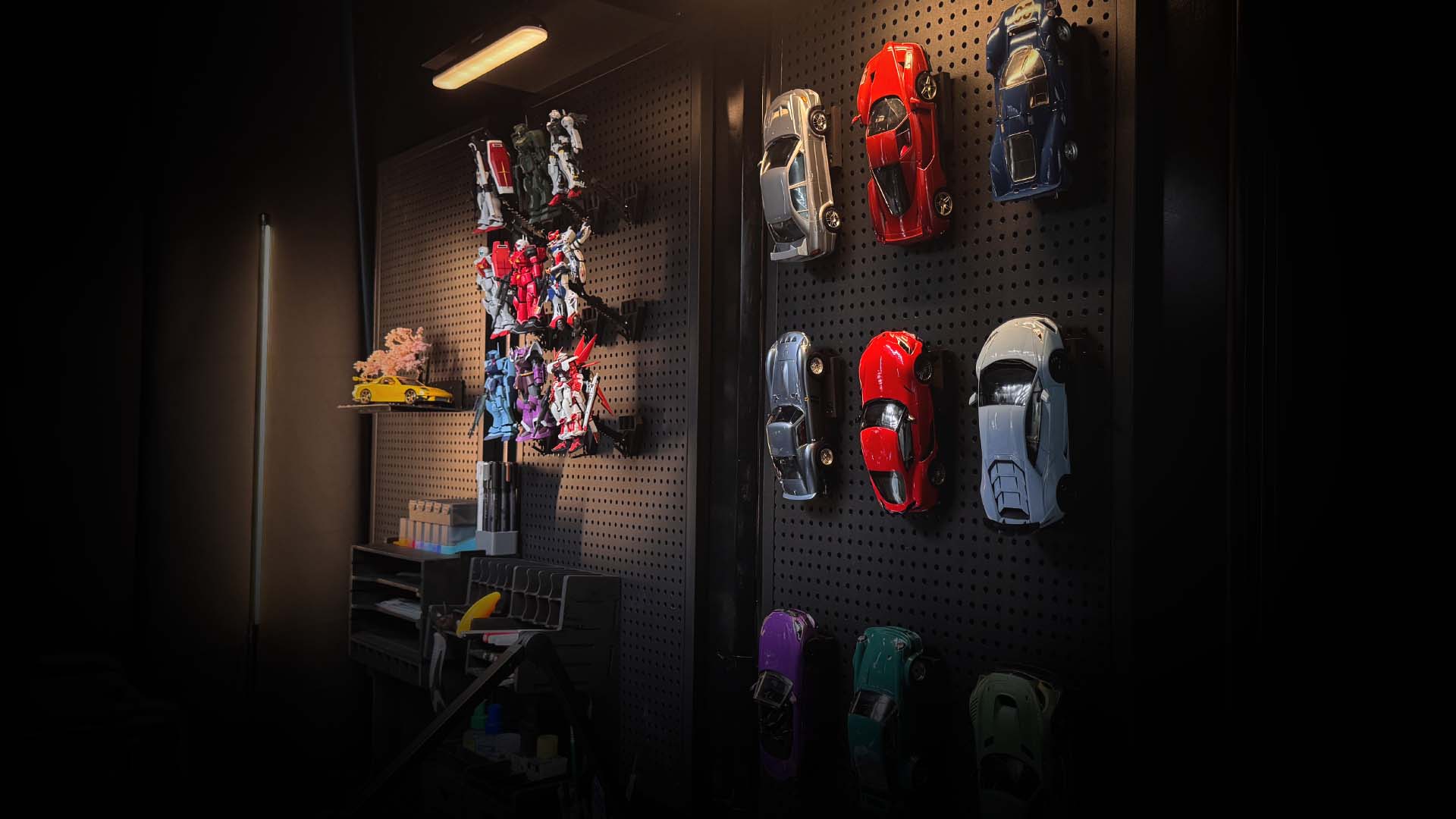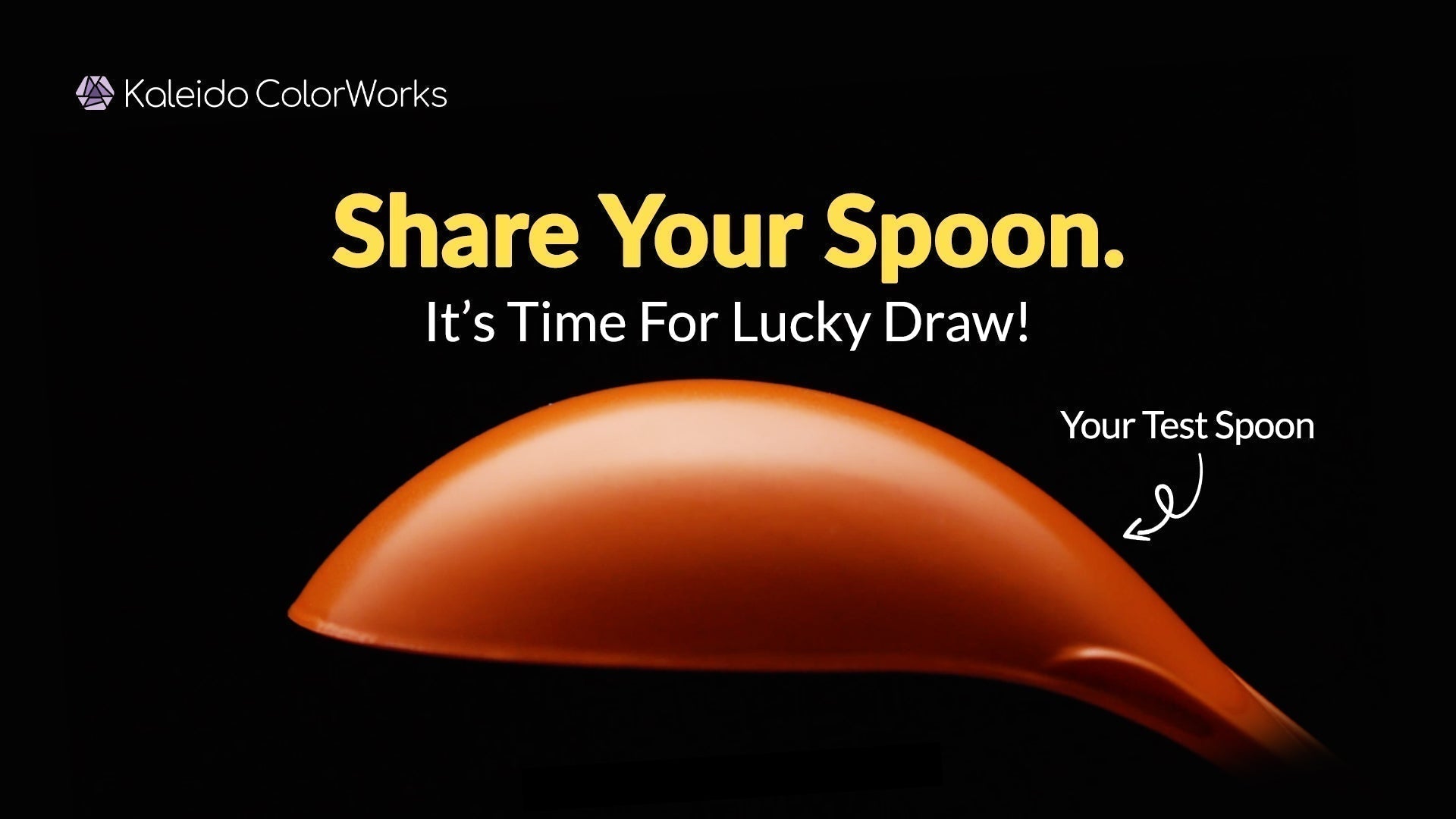Welcome to your first Kaleido ColorWorks experience! Whether you’re brand new to airbrushing or transitioning from other paint systems, this guide is here to help you get the best results out of your Kaleido paints right from the start.
Kaleido ColorWorks is not just another water-based paint. Kaleido Technology is engineered to spray like a dream, cure fast, and deliver that pro-level finish without exposing you to harsh solvents or overwhelming odors.
So let’s walk through how to get started—from unboxing your paints to finishing your first project—with simple, clear steps anyone can follow.
Step 1: Gather Your Essentials
Here’s what you’ll need to get started with Kaleido ColorWorks:
Must-Have Tools:
-
An airbrush (0.3mm nozzle is ideal; 0.2mm with thinner)
-
An air compressor (10–20 PSI recommended. e.g, GTS-06 Mini Compressor, Apex Force Series GTX-778 Air Compressor, or the Dual Series GT-918.
- Kaleido paints (choose your color set! 24 Primary Colors, 24 Mecha Colors, 24 Auto Colors, 12 Metallics
-
Kaleido Airbrush Thinner and/or Retarder Thinner
- Kaleido Airbrush Cleaner
-
Paper towel, mixing cup, dropper, and gloves (optional)
- Your model (plastic, resin, metal, or even fabric!)
Tip: Don’t forget safety basics like a spray booth or mask if you’re working in a small room, even though Kaleido is odorless and non-toxic.
Step 2: Shake & Prep Your Paint
Kaleido paints are pre-thinned at the factory, so you can usually use them straight from the bottle.
How to Prep:
-
Shake well for at least 30 seconds. Pigments settle over time.
-
Use a dropper or pour directly into the airbrush cup.
-
If needed, add a drop or two of Airbrush Thinner (especially for 0.2mm nozzles for low PSI setups).
- For ultra-glossy or smooth finishes, mix in a little Retarder Thinner to slow dry time.
Tip: Test the paint on a spare surface to check flow and consistency.
Step 3: Set Up Your Airbrush
Here’s how to dial in your airbrush settings for Kaleido:
-
Nozzle size: 0.3mm works best
- Pressure: Start at 15 PSI and adjust if needed
- Trigger control: Pull back gently for light, even coats
Kaleido’s RapidAir formula makes it easier to avoid common issues like beading or pooling—even for beginners.
Tip: Start with a test spray on a spoon or scrap plastic before painting your actual model.
Step 4: Prime (Optional, but Recommended)
While Kaleido paints adhere well to many surfaces without primer, using one can still give you better surface grip, color payoff, and durability.
Kaleido's RapidAir Primer Series includes:
-
Matte White – boosts brightness for light tones
-
Matte Black – great for shading and dark tones
-
Matte Gray – excellent all-rounder
- Gloss Black – rare water-based primer, ideal for metallics
Spray the primer in light, even layers. Let it dry for 15-20 minutes before moving to color coats.
Step 5: Start Spraying Your Base Colors
Now it’s time to apply your color coats!
Best Practices:
-
Spray in light, even layers
-
Let each coat flash dry for 5–10 minutes
-
Avoid overloading or “flooding” the surface
- Build up color gradually
Kaleido offers excellent coverage, so you often only need 1–2 coats for solid results.
Tip: Use Primary Colors for mixing and custom tones, Mecha Colors for Gundam Kits, Auto Colors for cars, and Metallics for realistic metal finishes.
Step 6: Add Effects & Details (Optional)
Once your base coat is dry, you can move on to effects, weathering, panel lining, or highlighting.
Kaleido paints cure fast - usually touch dry in 15-20 minutes and fully cure in 24 hours. For extra durability or when masking, wait up to 72 hours for full hardness.
Panel lines and decals go on smoother with the 85 GU gloss finish of Kaleido's Mecha and Auto Colors.
Tip: Use a gloss top coat before applying decals, then seal with matte or semi-gloss clear coats.
Step 7: Finish With a Clear Coat
Protect your work and adjust the final finish using Kaleido’s professional-grade clear coats:
-
Matte Clear – perfect for military, realism, or weathered looks
-
Semi-Gloss Clear – for a balanced, natural finish
-
Gloss Clear – for high shine and depth (polishable!)
Apply in thin, even layers and let it cure completely. These top coats are compatible with all Kaleido colors and are fully modular, meaning you can layer matte over gloss or vice versa.
Tip: Don’t rush—give your clear coats 24 hours to cure for the best durability.
Step 8: Clean Your Airbrush
Never skip this step! Kaleido's airbrush cleaner is:
-
Fast-acting
-
Non-toxic
- Over 30% more efficient than regular water-based cleaners
Cleaning Steps:
-
Rinse the cup with water.
-
Add a few drops of cleaner.
-
Spray through until it runs clear.
- Disassemble and wipe the needle if needed.
Tip: For best performance, clean your airbrush between each color switch and at the end of each session.
Step 9: Store Paints Properly
-
Keep bottles tightly sealed.
-
Store in a cool, dry place away from direct sunlight.
- Shake before every use, especially if stored for weeks.
With proper care, Kaleido paints last a long time without separating or losing performance.
Bonus: Common Beginner Questions
Q: Can I use Kaleido with a paintbrush?
A: Technically, yes, but the result will not be as good as airbrushing. A dedicated Hand-Paint Series is in development.
Q: Can I mix Kaleido with other brands?
A: You can mix it with other true water-based acrylics, but it's not recommended. Kaleido's RapidAir system is finely tuned, and mixing could reduce its anti-beading and leveling properties.
Q: Can I paint over lacquer or solvent primers? A: Yes, make sure they are fully cured. Likewise, you can top Kaleido with solvent-based clear coats - just use a light mist coat first.
Final Thoughts: Painting Made Simple
Using Kaleido ColorWorks is designed to be stress-free, even for absolute beginners. With pre-thinned formulas, beginner-friendly flow, and a safe, low-odor formulation, you can focus on enjoying the painting process rather than battling technical issues.
Whether you’re painting gundams, cars, miniatures, or dioramas, Kaleido gives you a professional finish with none of the solvent headaches. And thanks to its modular system of primers, colors, thinners, and cleaners, you’ll always have the right tool for the job.
So grab your airbrush, pick your favorite color, and get spraying—your next masterpiece starts with Kaleido Colorworks.















